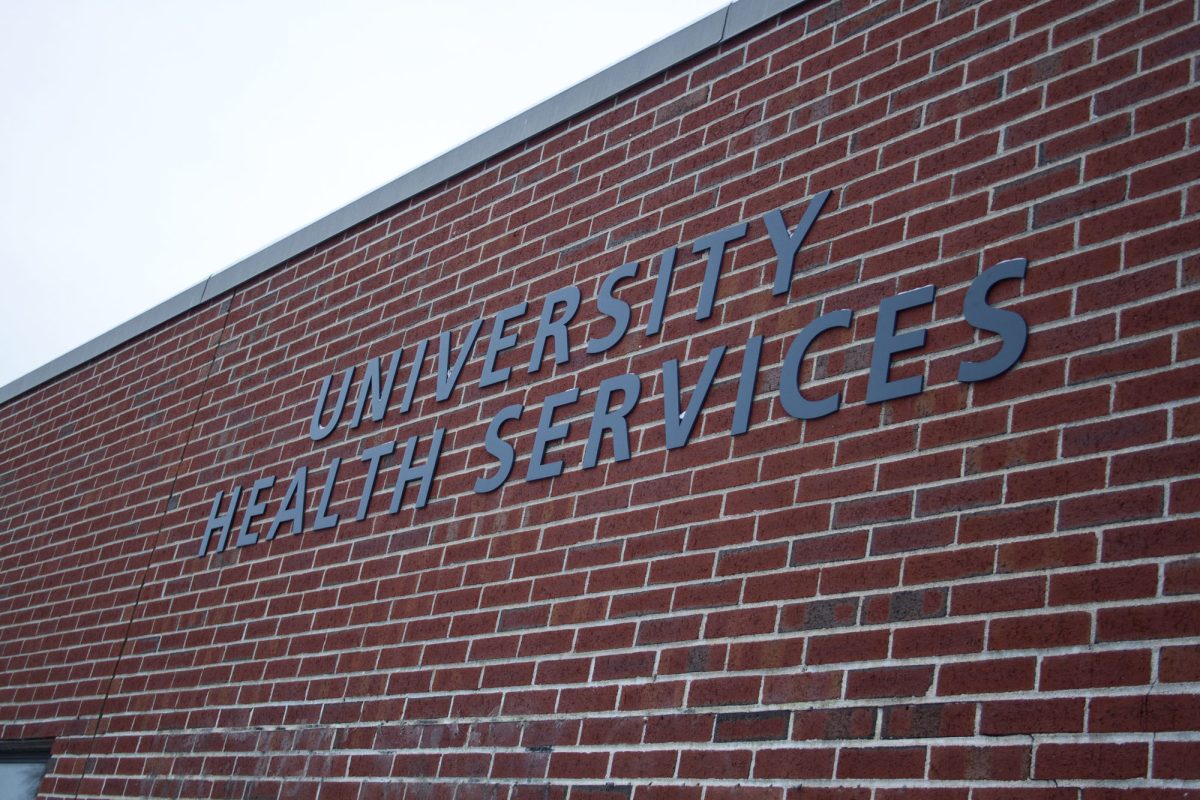It’s getting colder; the heat is being turned on in the residence halls, and the leaves are falling. It’s officially fall on the University of Massachusetts campus, and with fall comes apple cider, Thanksgiving break and UMass basketball, but also influenza and virus season.
Some students have already gotten sick, like sophomore electrical engineering major Colin Medeiros and sophomore architecture major Mira Gedeon.
“I was very fatigued,” Medeirod said. “I had a very stuffy nose, and when I was drinking water or eating food, it hurt to swallow.”
Luckily for Medeiros and other UMass students, there is on-campus health care with University Health Services (UHS).
Located next to Brett Residential Hall, the building accommodates the needs students might have regarding healthcare. The building is open from 8 a.m to 8 p.m. on weekdays and 11 a.m. to 5 p.m. on weekends.
“I had a cold for a good month,” said Gedeon, “they were pretty helpful [in] giving me the information I needed.”
UHS identifies sicknesses as well as prescribe medication for students. UHS does “a lot of triage and fielding of what the needs of students are and how sick [they] are,” said Jeremiah Berlin, a clinical registered nurse at UHS.
Medeiros took a trip to UHS in mid-October and said that he spent about an hour and a half at UHS, eventually getting diagnosed and being prescribed medication for an upper-respiratory infection.
“[The nurse] said that the best way to deal with a cold or flu-like disease is to tackle the thing that is causing the most discomfort,” Medeiros said.
“Our job is to try to get [students] back to full functioning as quickly and as easily as possible, and that includes taking care of them when they have the flu,” Berlin said. “What we do is supportive measures,” added Berlin. He emphasized that UHS recommends treating the flu with hydration, lowering fevers and rest.
October to April is “when it is easiest for the virus to survive,” said Berlin. “During those months, we’re spending more time inside; we’re circulating the air, we’re not having open windows and fresh air, [we are] not outside as much, there’s a lot more possibility for infecting people.”
However, in “early September, we saw a couple [flu cases] that we were kind of surprised about,” Berlin said.
“The two best things are washing your hands and not touching your face, “added Berlin.
UHS provides material online on their Instagram and in pamphlets inside the building on what can be done to treat and overcome the flu, as well as other upper respiratory infections.
“There is no cure for the flu, there isn’t even any treatment that’s really effective at [eliminating the disease],”Berlin said.
Berlin’s favorite new service at UHS during cold and flu season are cold care kits, saying they are “a little home away from home goodie bag of home care things.”
The kits are take-home bags with “all the things someone needs to get through some of the symptom management of the flu or an upper respiratory illness, or something else,” Berlin said.
It includes cough drops, a thermometer, tea packets, pain medication and a packet to inform you of cold symptoms. Along with most at-home remedies for cold and flu symptoms, such as salt and honey.
“[They have] a lot of helpful stuff that we don’t really [have] being in a dorm, as simple as like cough drops even just like ChapStick [for the] dry weather,” Gedeon said. “I honestly really like that bag.”
The cold care kits are just one way UHS is offering more support this fall.
In the last couple of years, UHS has had many students reporting negative experiences, both with their online services, wait times and response to student illnesses. However, employees and students agree that UHS is working faster and in unison with students this semester.
“I feel like they are helpful, they were helpful in my case. However, I feel they [will have] less interest in looking deeper” when illnesses are harder to identify, said Gedeon.
“Renovations in the walk-in clinic this summer [have] also probably helped things to flow a little better,” said Sasha Rivera, the communications and marketing specialist at UHS.
“We have more physical space, we have more resources,” Berlin said, who attributed not only the increase in space but also in communications with patients. Saying, “communication means all the difference to people, they want to know that you are taking care of them, that you notice them.”
One of the bigger issues for students last fall was the virtual queue wait times that were often inaccurate, and “there was a period of time when [UHS was] tweaking it,” Rivera said.
“The wait time definitely got a little bit better than it was last year. I think it probably also matters on the day, but overall, it’s been better,” Gedeon added.
“[The online waiting room] definitely speeds it up,” said Medeiros. “If it wasn’t online, you’d have to wait in a line to get into a waiting room to then wait again.”
“I’m still waiting on getting better, but I think the symptoms are going down a bit,” Medeiros said.
While there is no definite cure for the flu, UHS does provide flu shots for free, offering them all around campus until Nov. 30.
“On Fridays, 10 a.m. to 2 p.m., annual influenza vaccines and COVID-19 vaccines are available at the Public Health Promotion Center’s clinics. Clinics will be held at the PHPC (Campus Center lower level, room 101),” the UHS websitestated.
“Especially on campus where you’re surrounded by so many people, constantly, the influenza vaccine takes about two weeks to ramp up protection,” said Berlin, “it costs nothing to get the flu shot.”
“I definitely recommend going to UHS first,” said Gedeon. “Having the opportunity to [get healthcare] go on campus is helpful for everyone.”
Alexandra Hill can be reached at [email protected].




















